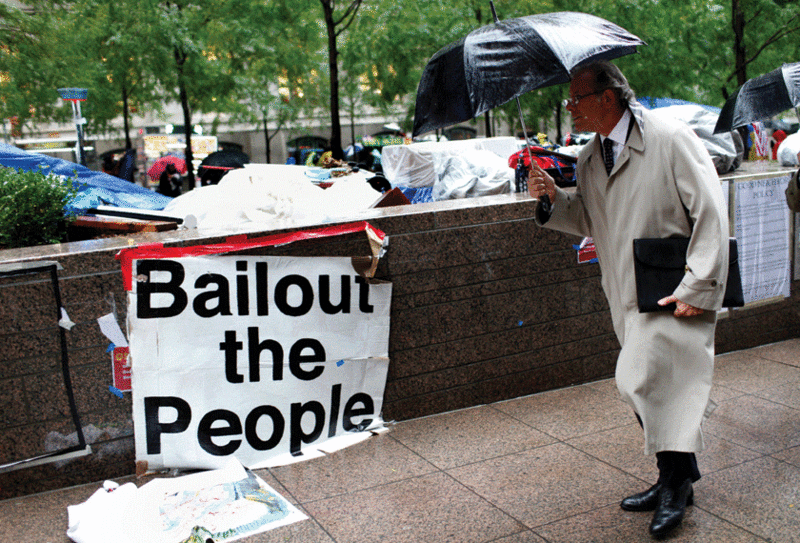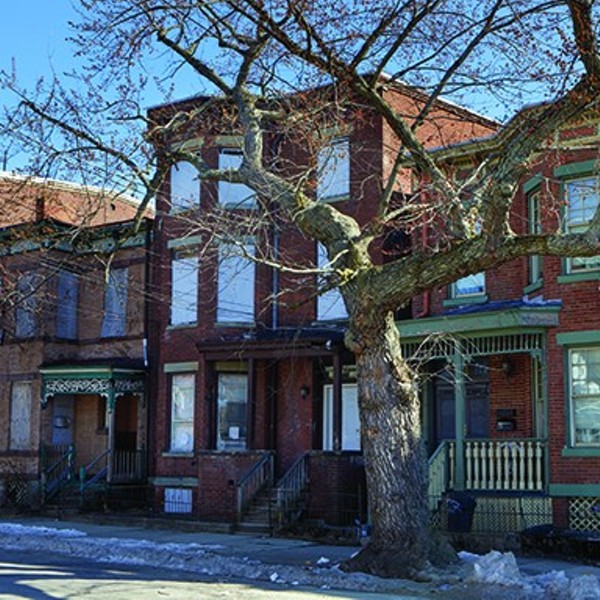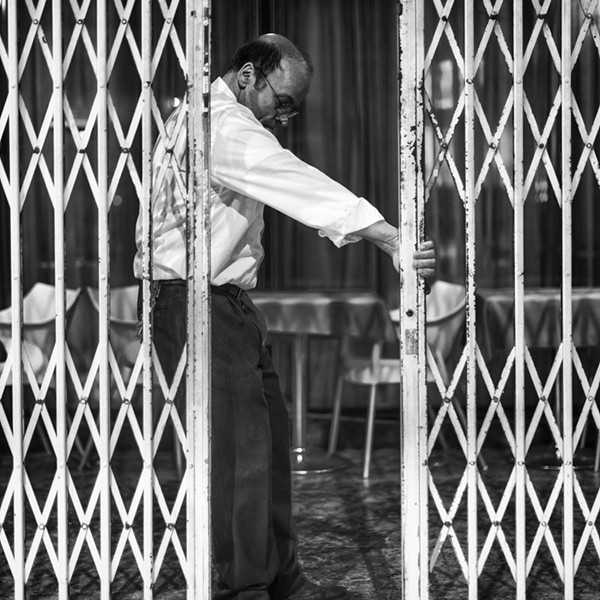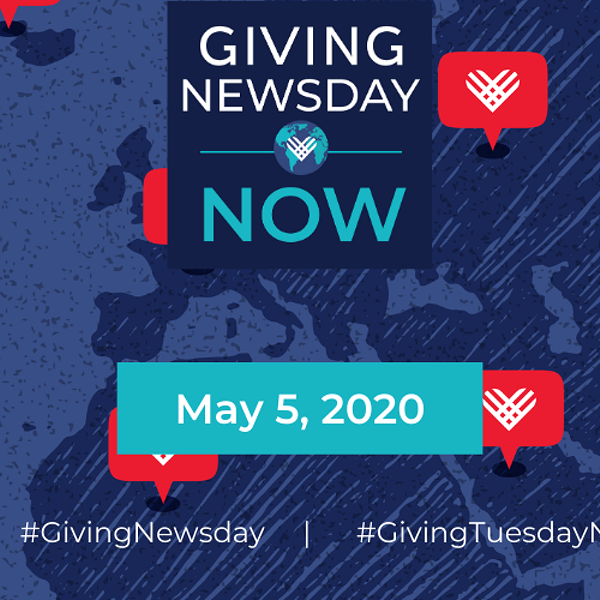Editor's Note: November 2011
[]
Like 99 percent of native New Yorkers I'd never heard of Zuccotti Park before September 17 when hundreds of people converged on the downtown square. Like much of the world’s population (seven billion of us by the time you read this), now I can’t get Zuccotti Park off my mind. At first, the reason had to do with a failure to understand what Occupy Wall Street was about. A private park named for a real estate mogul is being held hostage, but no demands are being issued. Despite comments from certain quarters that the protestors have no agenda, this much is clear: There is a burning dissatisfaction with the state of the economy, the unfair way the poor are saddled with the sins of rich bankers, and with capitalism itself. But there is nothing that can be delivered to make them go home. No policy action is demanded. No one is saying, “Create a million jobs and we’ll leave.” Or, “Tax the billionaires and we’ll go home and watch ‘Dancing with the Stars.’”
There is also no spokesperson for the group, and no talking points from which said phantom spokesperson might voice Occupy’s agenda to the world. Instead, the occupiers seem more interested in talking to each other and building consensus via the human microphone, an ingenious, person-powered amplification system. (Which at times, to be honest, can sound creepy and cultish as hundreds of people shout back what was just said by the primary speaker.)
The media and the pundits are unable to place the protests in a ready-made ideological package or narrowly define the protestors as modern-day hippies or would-be anarchists. The demographic range of protestors is wide: high schoolers with their parents, college students in school sweatshirts, men in business suits, mothers with baby carriages, celebrities, people with jobs, African drummers, the unemployed, and white-haired retirees are all in attendance. And, as per the standard media coverage of protests, distortions abound. Reuters erroneously reported as fact a rumor started by Rush Limbaugh that George Soros had financed the initial stages of the Occupy movement through Canadian-based provocateurs Adbusters, who were involved from the beginning.
(Adbusters said it wished it had received money from Soros, though it had not. Occupy is apparently a real grass roots movement, unlike another supposed populist front, the Tea Party, whose green grass was planted with money from David and Charles Koch. Another recipient of the Kochs’ largesse, Republican presidential candidate Herman Cain, was asked what he would say to the occupiers. “Don’t blame Wall Street,” Cain said. “Don’t blame the big banks. If you don’t have a job and you’re not rich, blame yourself. This is what I don’t understand about these demonstrations: What it is that they’re looking for.” Note to Herman Cain: With the unemployment rate at almost 20 percent for those under 25, what do you expect all these young grads to do? Delivering pies for Godfather’s Pizza is not going to be enough to help them get out from under their student loans [“While You Were Sleeping”].)
With the media unable to digest and regurgitate my news for me, I am in a bit of categorical limbo. Normally, protests gather around finite events—a World Trade Organization meeting, the run up to a war—make a fuss, then melt away. Occupy isn’t playing the protest game by the normal rules. Either Occupy Wall Street is a soon-to-be-forgotten carnival of direct democracy, or perhaps it’s the beginning of something, a process without rigid ends, a qualitative rather than quantitative politics that’s resonating for a reason deeper than rampant income inequality, corporate excesses, and a government rigged to protect them both. It’s an opting out of the system itself. OWS is saying, in effect, if Wall Street’s wealth expropriation is the problem, then here is our critique, but we don’t expect change to come through legislation. We’ll build another model entirely and see how far that takes us. This process represents a critical point about the movement: People are shifting from being passive, frustrated observers of politics to empowered players. Instead of waiting for leaders to do the right thing, people from all walks of life are taking part. Sounds crazy, right?
It reminds me of another group of civil resisters who had long standing grievances—high unemployment, food inflation, corruption, a lack of freedom of speech and other political freedoms, poor living conditions—in Tunisia. It only took 28 days from a young farmer named Mohammed Bouazizi setting himself on fire to the ouster of President Zine El Abidine Ben Ali. And now grass roots revolution is spreading across the Middle East.
That said, I don’t imagine a mass movement taking to the streets in the US and toppling a mailbox, let alone a government. After all, most of us 99 percenters would rather watch “Dancing with the Stars.” When we’re not, there’s still an opportunity to become part of this process that’s emerging from the Occupy movement. If Wall Street is the problem, then localism is one answer readily available to us. Buy locally. Bank locally. Engage locally. Let’s continue to create real wealth in our communities. What more do we have to lose? Think of what we have to gain.

















